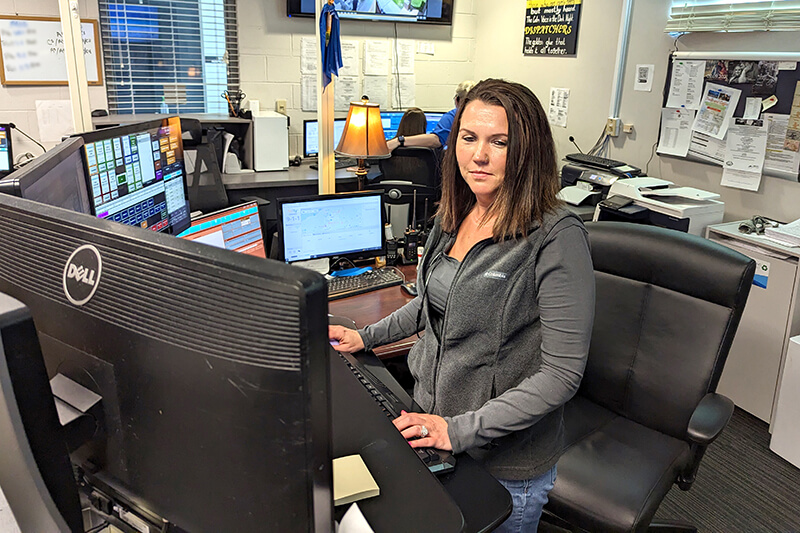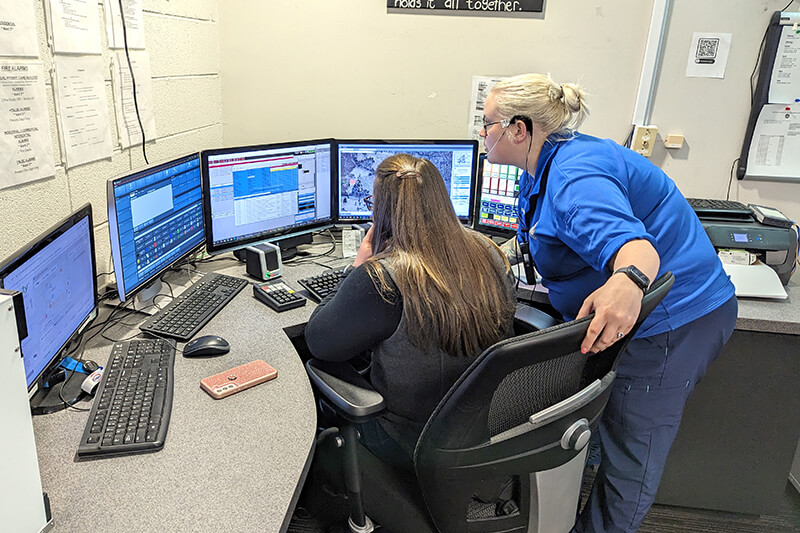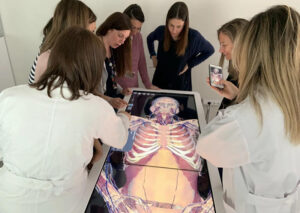McDowell Technical Community College is adding two new curriculum programs this fall to meet ongoing local and regional workforce needs.
Following on the recent success of the college’s new Construction Trades Academy, a diploma program in Building Construction Technology will be a natural progression for students interested in construction-related employment requiring higher skill levels. The new 911 Communications and Operations program will prepare students to work in emergency communications centers in both line staff and supervisory positions.
“The addition of both of these programs is the result of our collaboration with workforce partners and an analysis of workforce needs throughout the region,” said Dr. Brian S. Merritt, MTCC President. “It is critical to our success as a community college to be vigilant in addressing employer needs, student interests and providing programs that lead to jobs with family-sustaining wages. Certainly, these new programs check the box for each of these criteria.”

911 Communications and Operations
According to Valerie Dobson, McDowell Tech’s Chief Academic Officer, regional and national demand for public safety telecommunications professionals has nearly doubled since the COVID pandemic. “There was a longstanding vacancy rate of 15-20% before COVID, which was high, but post-COVID, the vacancy rate has increased to at least 30%, which is a severe shortage,” said Dobson. “The new 911 Communications and Operations program is expected to help alleviate some of that shortage and bridge the skills gap for 911 and other emergency dispatchers.”
McDowell County’s 911 Communications Manager, Amberlie Buff, indicates that the current demand at the local level is very high. “There is a need for numerous new positions in the 911 Center, along with the need to cross-train other public safety employees,” she said. The 911 Center currently employs 16 full-time and approximately 8 part-time staff, with a varying number of reserve dispatchers assisting during emergency or disaster situations.
Up until now, the department has relied on hiring local high school graduates and providing on-the job training to fill local telecommunication vacancies. With the college’s new program, McDowell Tech will train new telecommunications staff and cross-train existing staff, freeing local emergency services agencies to focus on local dispatch protocols in new hire training.
“Offering this program to formalize education and training, we can provide a steady pipeline of fully-trained 911 Communications and Operations staff who are cross-trained within multiple departments, including local government emergency communications centers, county sheriff’s offices and other local law enforcement agencies, fire and EMS agencies, emergency management and related emergency dispatch operations,” said Dobson.
According to recent data from JobsEq by Chmura, a labor market research company, there are approximately 172 active job postings in Western North Carolina alone for public safety telecommunicators and dispatchers, with an expected growth rate of 4% through 2033. Throughout North Carolina, the Bureau of Labor Statistics reports an average annual salary of $46, 670 for public safety telecommunicators, higher than the average household income for McDowell County residents.

Building Construction Technology
While the college has been approved to offer associate degrees, diplomas and certificates in Building Construction Technology by the Southern Association of Colleges and Schools—the college’s accrediting body—the college is initiating the program at the diploma level only this fall. The diploma has been designed to allow working students or those who want to participate in work-based learning classes to complete the program in two years on a part-time basis. No experience in construction is required to enter the program.
The first two classes offered this fall will be in Carpentry and Blue Print Reading. In the Construction Trades Academy, students work toward certifications with NCCER, the National Center for Construction Education and Research, and Saxton hopes to integrate the same credentialing process in the new curriculum program. Construction students at McDowell High School (MHS) also participate in NCCER certification programs, which will allow MHS graduates to easily transition to Building Construction classes at McDowell Tech.
The college will continue its ongoing partnership with Gateway Wellness Foundation, building new homes for low-income residents and completing home repairs for elderly and disabled citizens, and students in Building Construction Technology will take part in these hands-on learning opportunities.
Chris Saxton, who has led the college’s Construction Trades Academy, will be coordinator of the new Building Construction Technology Program. Saxton brings a wealth of construction experience to his new role, including work with Foothills Custom Cabins, builder of ‘tiny homes’ in Morganton, and Miller Engineering of Marion. He holds a diploma in Carpentry from McDowell Tech, a bachelor’s degree in Communications and Outdoor Recreation from Appalachian State University, and is completing a master’s degree in Parks and Recreation and Sports Management from NC State University.
Saxton is a veteran of the United States Marines, where he worked in diplomatic security, experience which he later used as a security officer with Samaritan’s Purse in Boone. For six years, Chris was also a small business owner, operating a convenience stores in Arizona.
Saxton will use an instructional model which focuses heavily on hands-on learning and skills development, with approximately 80% of instruction taking place in a lab or related setting. Students will complete online assignments, review and testing online for the other 20% of instruction.
“Our catchphrase is ‘Dream, Design, Build,’” said Saxton. “Hopefully, we will be working with the MTCC Foundation to design and build a ‘tiny home’ over the course of our two-year program.” When completed, the tiny home would be sold to buy additional tools for the program, as well as other expenses, including field trips to construction projects, uniform shirts and so forth.
“We are thankful for local partners, such as our local emergency and public service agencies and Gateway Wellness Foundation, for helping us identify and provide seamless education and hands-on training programs to fill critical workforce shortages and to help our graduates secure meaningful jobs to provide for themselves and their families,” said Dr. Brian S. Merritt, the MTCC President. “We look forward to working other partners in the future to identify additional training needs and find workable solutions for those needs. It is a critical piece of our mission and vision, and we will continue to be there when we’re needed.”



